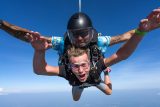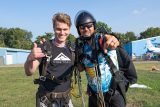Can You Pass Out While Skydiving?
Skydiving
Posted by: Start Skydiving
9 months ago
As you gear up to take the plunge, it’s natural to have a few nervous butterflies batting around your stomach. Among the questions zipping through your mind, you may wonder, “What happens if you pass out while skydiving?” And also … “How to not pass out when skydiving?”
Understanding the factors that contribute to fainting while skydiving can help us to significantly decrease that slight possibility. Let’s dive into the science behind why people may pass out and share some tips on how to keep your cool (and your consciousness) while soaring the skies.
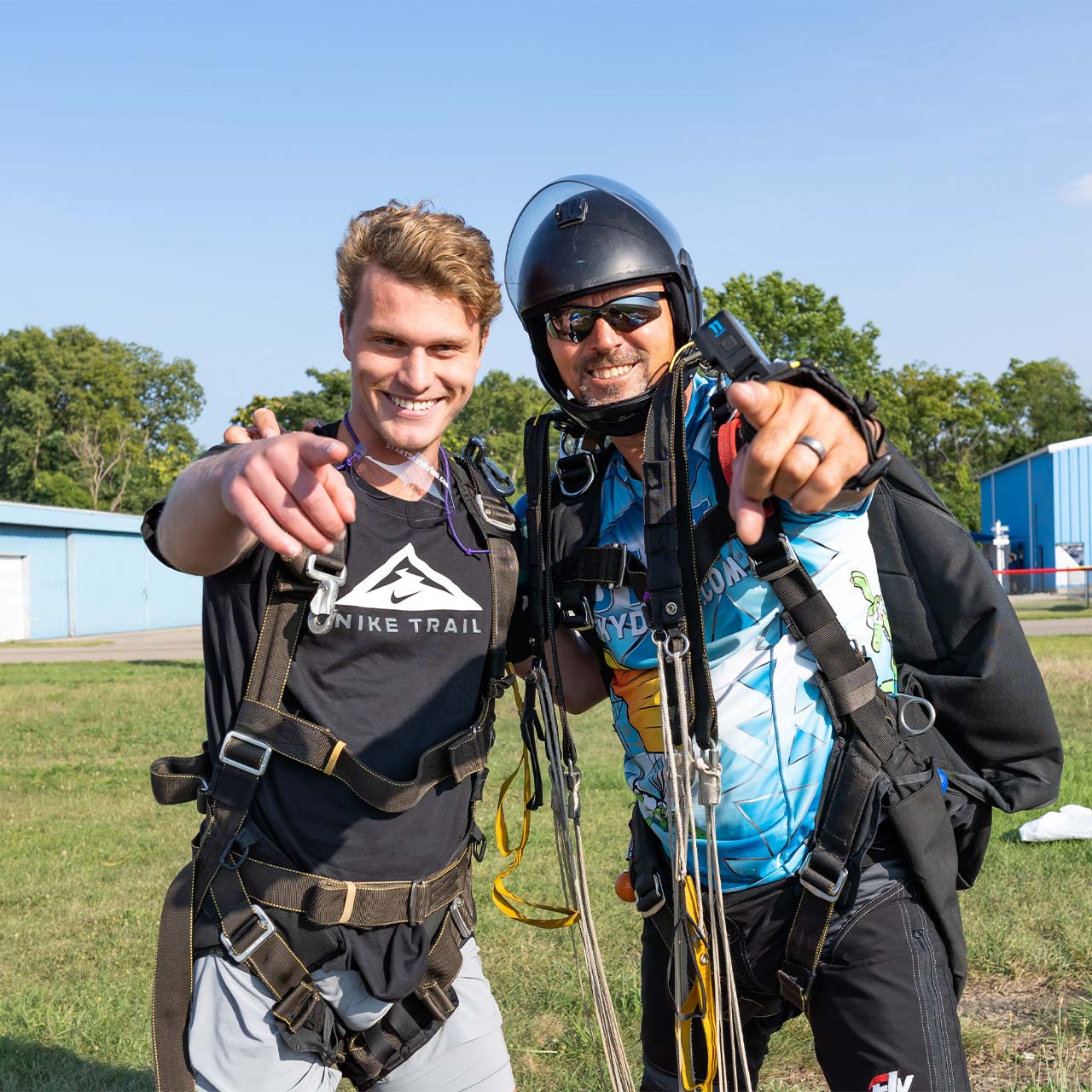
Why Do People Pass Out?
People pass out due to a reduction of blood flow to the brain. This can happen because of various triggers, such as a sudden drop in blood pressure, hyperventilation, or even an adrenaline surge. Passing out is our body’s special way of saying, “Hey, please calm down and take care of me!”
Please note that people may faint due to unforeseen medical issues unrelated to skydiving. It’s advisable to get the go-ahead from your doctor if you think you may fall into this category!
Can You Pass Out While Skydiving?
Short answer: Yep. Passing out while skydiving is a possibility. But so is passing out while running, standing in front of a crowd, riding a roller coaster, or literally just … sitting there! So, is it common to pass out skydiving? Nope. Fainting while skydiving is a rarity, but it can happen.
What Are The Most Common Causes of Passing Out Skydiving?
Dehydration.
Not drinking enough fluids before the jump can lead to dehydration, which can cause a lull in blood pressure and result in fainting.
Low blood sugar.
There is a common misconception among first-time jumpers that not eating is the way to go – wrong! Many people believe if they say no to food before their jump, they will avoid feeling nauseous, but this couldn’t be further from the truth, and skipping a meal on jump day may actually leave you feeling woozy.
Low blood sugar can lead to impaired coordination, feeling dizzy, and becoming weak. Combine these with a big ol’ surge of adrenaline and you’ve got yourself a not-so-fun-time ahead. The excitement surrounding skydiving expends energy quickly, and the effects of this will be felt tenfold if you haven’t eaten.
Anxiety.
If you weren’t feeling a bit nervous for your first jump, that would make us nervous! Nerves before an exciting adventure are totally normal, but for some, this reaction can be a bit overwhelming and lead to feeling light-headed or even fainting.
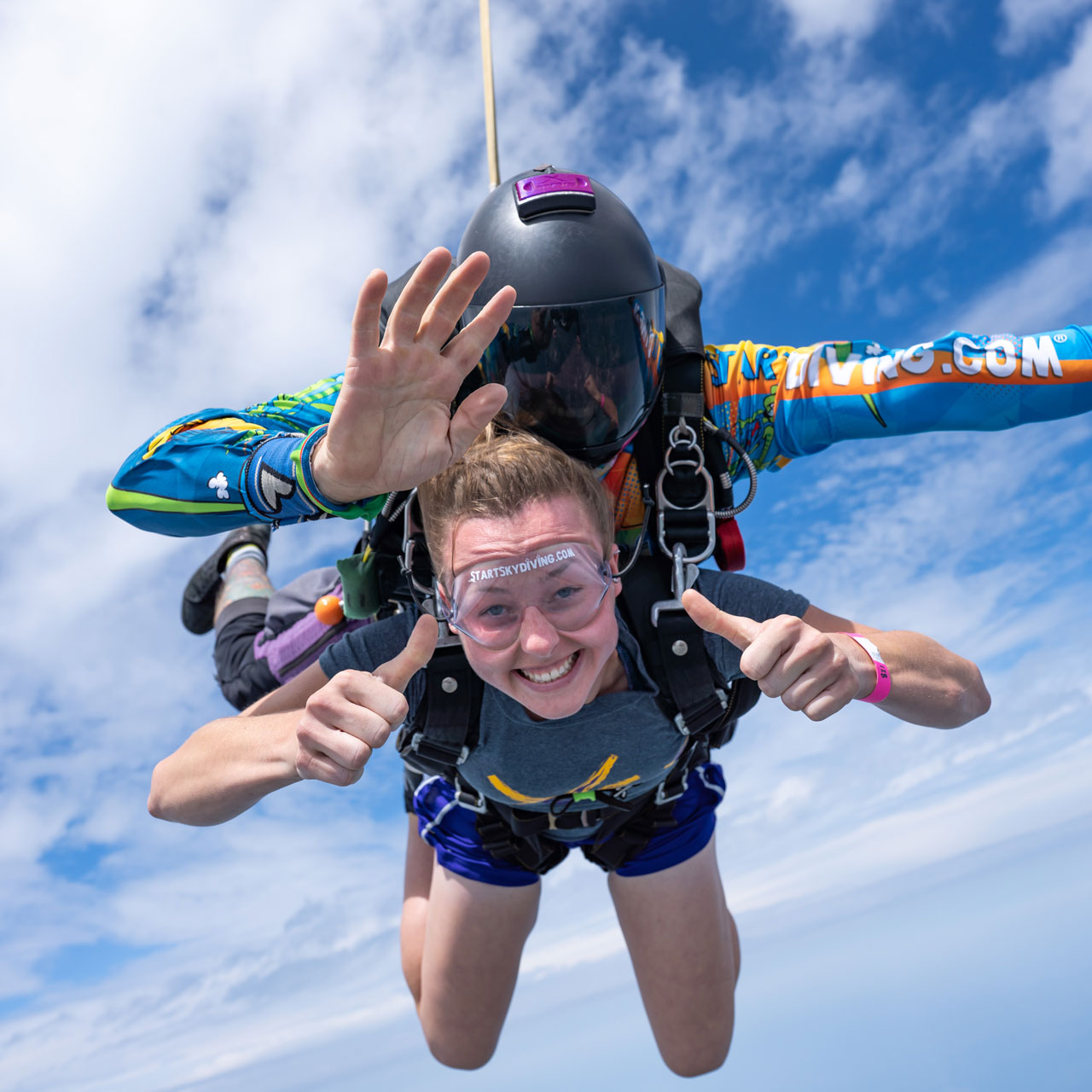
How Not To Pass Out When Skydiving
Stay nourished and hydrated.
It’s very important to stay satiated and hydrated on the day of your skydive. Think of it this way: Do you want to eat ten tacos and drink a margarita before you go hiking? Probably not. Contrarily, do you want to fast before a hike? Mmm, nope. Should you eat a moderate meal that you know will keep you satiated and is easy on the tummy? Bingo! This will help to keep your blood sugar in check.
Sleep.
Anxiety thrives when we have minimal rest. We know that those infamous pre-jump nerves will beg you to stay up all night, but try your best to get some shut eye! Your body and brain are about to undertake flinging themselves from an airplane miles in the sky, and need all the rest they can get! How fast are you falling when skydiving once you exit? Terminal velocity, baby! Which is about 120 mph.
Communicate.
Communication before the jump, during the plane ride, and when the parachute opens is encouraged! Tandem instructors are trained professionals with years of experience, hours of time spent in freefall, and hundreds or thousands of skydives! They’re our real-life superheroes, but even they can’t read minds. If you’re feeling apprehensive or have any questions at all – ASK AWAY. Your comfort and confidence in the jump is a top priority!
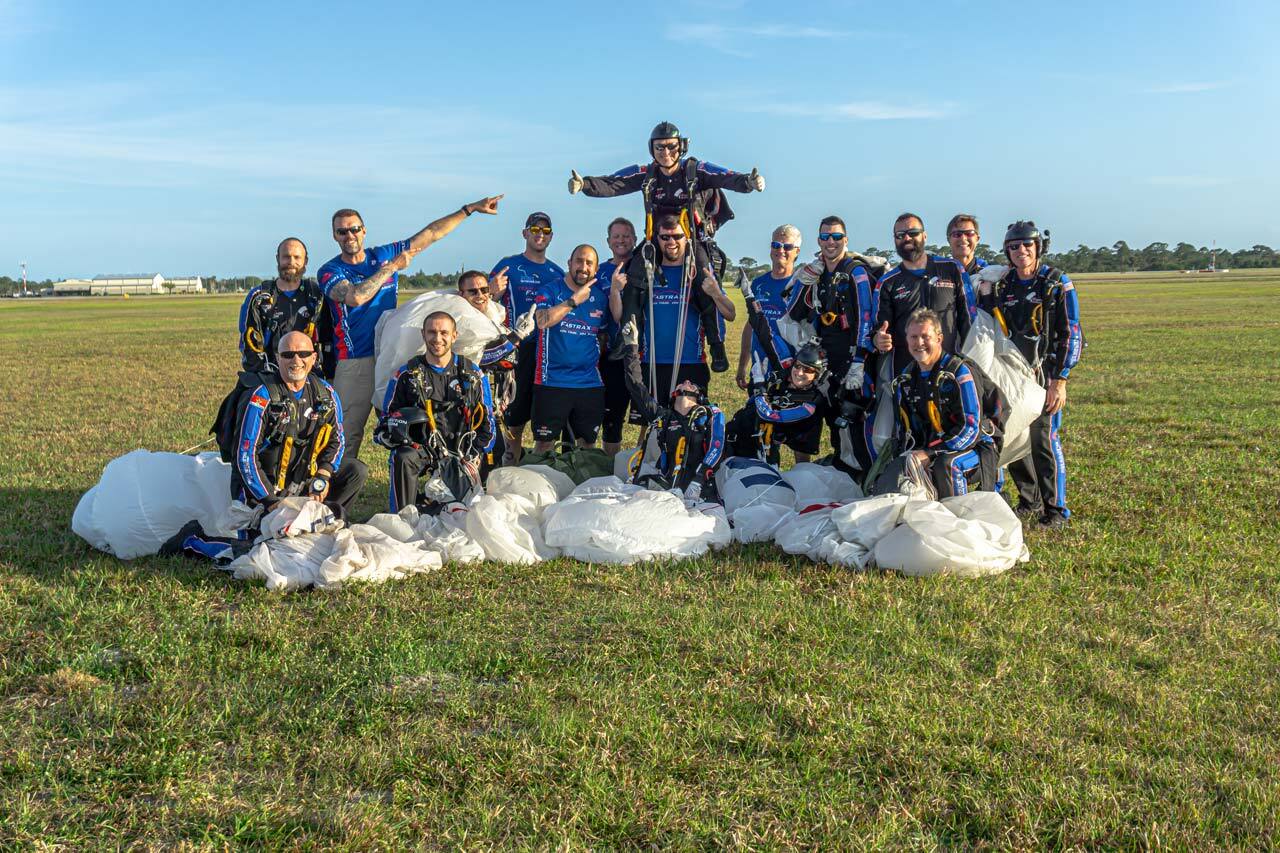
Can You Skydive If You Have Panic Attacks?
Absolutely! People who struggle with anxiety regularly skydive. In fact, many avid skydivers commonly joke that they skydive because it’s cheaper than therapy.
Is it hard to breathe when skydiving? Although breathing during a skydive can feel a bit different than it does here on the ground, we wouldn’t go as far as to say it’s hard – there’s no less air up there, it’s just a mental block some people have to overcome. So, can you breathe while skydiving? Absolutely. If you’re feeling nervous about how to take in all the oxygen up there, what should you do? Communicate! Your instructor was once in your exact shoes and can give you tips and tricks to conquer every part of the jump.
Embrace the thrill of skydiving with confidence – book today! Please don’t hesitate to connect with us if you have any questions or concerns.
